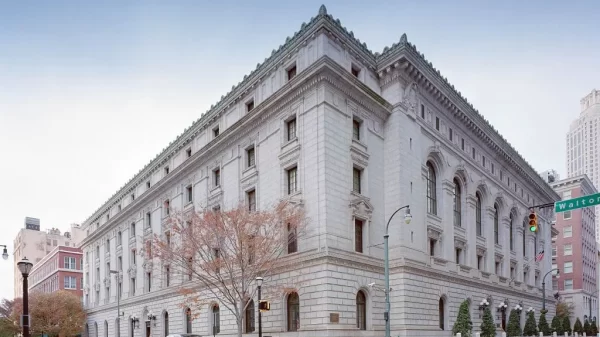Wednesday, federal appeals court struck down an Alabama state law, the Alabama Unborn Child Protection from Dismemberment Act, prohibiting physicians from providing dilation and evacuation (D&E). Abortion proponents argue that dilation and evacuation is a medically proven method for performing abortions. The decision from the Eleventh Circuit Court of Appeals in the case brought by the American Civil Liberties Union is the first by a federal appeals court on the constitutionality of a ban on the D&E procedure.
Alabama Governor Kay Ivey (R) issued a statement commenting on the 11th Circuit Court of Appeals, which affirmed the lower court decision striking down the Alabama Unborn Child Protection from Dismemberment Act.
“I was supportive of the bill when it passed through the Legislature in 2016, and I signed it as president of the Senate,” Gov. Ivey said. “I am disappointed in the court’s ruling today; however, we should not let this discourage our steadfast commitment to protect the lives of the unborn, even if that means taking this case to the U.S. Supreme Court. This ruling clearly demonstrates why we need conservative justices on the Supreme Court, and I look forward to the confirmation of Brett Kavanaugh.”
The ACLU of Alabama defended the abortion industry in court.
“Today, the court told Alabama politicians they can’t disregard a woman’s health and decision-making in favor of their ideological agenda,” said Randall Marshall, executive director of the ACLU of Alabama. “This ruling ensures that doctors can continue to use their best judgement to provide the care that is right for their patients.”
Andrew Beck, the senior staff attorney at the ACLU Reproductive Freedom Project, said, “The upshot of this ruling is that women’s health, not politics, will guide important medical decisions about pregnancy. Laws like this are part of a larger strategy by anti-abortion politicians to push abortion out of reach entirely. Today, the court affirmed a woman’s right to get the care she needs.”
While the Eleventh U.S. Circuit Court of Appeals criticized the Supreme Court’s abortion decisions, calling them an “aberration of constitutional law,” the court of appeals acknowledged it is not the Supreme Court, and thus affirmed the lower court’s decision that found Alabama’s law prohibiting dismemberment abortions of live unborn babies, known as Dilation and Extraction (D&E), violates the High Court’s decisions.
In her special concurrence, Judge Dubina wrote:
“I write separately to agree on record with Justice Thomas’s concurring opinion in Gonzales v. Carhart, 550 U.S. 124, 168-69, 127 S. Ct. 1610, 1639-40 (2007) (Thomas, J., concurring), with whom then Justice Scalia also joined. Specifically, Justice Thomas wrote, ‘I write separately to reiterate my view that the Court’s abortion jurisprudence, including Casey [Planned Parenthood of Se. Pa. v. Casey, 505 U.S. 833, 112 S. Ct. 2791 (1992)] and Roe v. Wade, 410 U. S. 113, 93 S. Ct. 705 (1973), has no basis in the Constitution.’ Id. at 169, 127 S. Ct. at 1639. The problem I have, as noted in the Chief Judge’s opinion, is that I am not on the Supreme Court, and as a federal appellate judge, I am bound by my oath to follow all of the Supreme Court’s precedents, whether I agree with them or not.”
Kayla Moore, the President of the Montgomery based Foundation for Moral Law took issue with the ruling:
“Because the Eleventh Circuit had an amicus brief in front of it explaining why the court’s duty was to follow the Constitution instead of the Supreme Court, the court knew it had a duty to disregard Roe and protect the children’s right to live.” Moore added, “The Eleventh Circuit cannot wash its hands of the blood of the innocent by placing the blame on the Supreme Court. The victims of the Eleventh Circuit’s passivity are Alabama’s unborn children, who can now be murdered by having their limbs torn from their bodies while their hearts are still beating.”
In West Alabama Women’s Center v. Thomas Miller, Liberty Counsel filed an amicus brief on behalf of the American Association of Pro-Life Obstetricians and Gynecologists and American College of Pediatricians, defending the Alabama law that prohibits dismemberment abortions of live unborn babies based on the medical evidence of their ability to feel intense pain.
Liberty Counsel and Alabama’s Pro-Life legislators argue that the scientific evidence supports the assertion that unborn babies feel pain as early as eight weeks gestation.
The court used very graphic language to describe the abortion procedure:
“This case involves a method of abortion that is clinically referred to as Dilation and Evacuation (D & E). Or dismemberment abortion, as the State less clinically calls it. That name is more accurate because the method involves tearing apart and extracting piece-by-piece from the uterus what was until then a living unborn child. This is usually done during the 15- to 18-week stage of development, at which time the unborn child’s heart is already beating.”
“Under the Act, the one performing the abortion is required to kill the unborn child before ripping apart its body during the extraction. [citation omitted] Killing an unborn child and then dismembering it is permitted; killing an unborn child by dismembering it is not. The parties agree that for these purposes an unborn child is alive while its heart is beating, which usually begins around six weeks. See How Your Fetus Grows During Pregnancy, Am. Coll. of Obstetricians & Gynecologists (April 2018).”
The Alabama Legislature did not ban abortions in the state; but rather just this particularly type of abortion.
“In this method of ending a pregnancy, dismemberment abortion ‘requires the abortionist to use instruments to grasp a portion (such as a foot or hand) of a developed and living fetus and drag the grasped portion out of the uterus into the vagina.’ [Stenberg v. Carhart, 530 U.S. 914, 958, 20 S. Ct. 2597, 2624 (2000)]. The practitioner then “uses the traction created by the opening between the uterus and vagina to dismember the fetus, tearing the grasped portion away from the remainder of the body.”
“Alabama’s law is a common-sense solution to a barbaric and gruesome procedure,” said Mat Staver, Founder and Chairman of Liberty Counsel. “If the vilest criminal has human dignity that prevents cruel and unusual punishment, then how much more should laws protect an innocent unborn child from the most despicable form of torture and death? There are just seven countries in the world that allow children to endure this barbaric procedure and that disgraceful list includes the United States. We must make the womb a safe place again. This case or one like it cries out to the Supreme Court Justices to reverse the horrible abortion decisions. As the court correctly noted, the Supreme Court abortion decisions are an ‘aberration of constitutional law.’ This is true, but they also violate higher law and condone the worst kind of infanticide.”
The Alabama ACLU argued that leading medical experts such as the American College of Obstetricians and Gynecologists oppose this type of abortion restriction. An evidence-based and non-partisan report from the National Academies of Science, Engineering, and Medicine described D&E as a “superior method” of abortion, finding that it is extremely safe with minimal complications.
Similar bans in Kansas, Oklahoma, Louisiana, Texas, and Arkansas have all been blocked when challenged in court. The ACLU is challenging a similar law in Kentucky.



















































